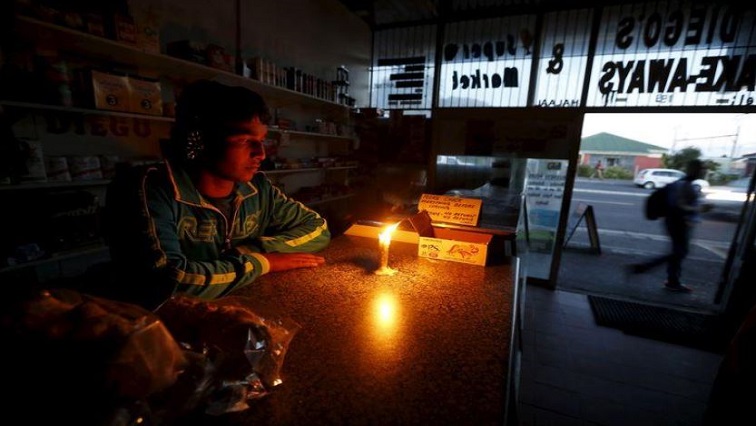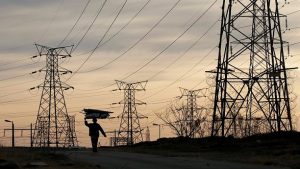The increase of rolling blackouts to stage 6 at the weekend has left many citizens frustrated as they begin the week.
Small business owners and those working from home are among those who expressed the costly inconvenience of rolling blackouts.
Shannon Hugo manages a beauty bar in Pretoria North.
The business took a hard knock at the weekend following the increase in rolling blackout stages.
The business is currently facing up to six hours a day without power.
While they have a generator on standby, running it means they sacrifice profits.
“It becomes a very big expense because it takes up to R300-R400 if we must plug and use it for the full day. So, then we pay additional for the generator and our normal light and water bill as well.”
Clients are also hard to come by.
“For example, today [Monday] we’ve only had two customers for the whole day because we were expected to have [power cuts] from 10h00 -14h00, another four hours yet again and there is no clientele whatsoever,” adds Hugo.
Those working from home are also not spared.
Phindile Mabaso, a supply chain professional who has a health condition that requires her to work from home, says she now has to spend extra money on travelling expenses.
“At the end of the day, we are forced to go to the office which changes the whole hybrid style of working. I am working for an international company. We had just the same situation just a few hours ago. We had a meeting and a person who was supposed to share the presentation had load shedding. She was not able to access emails right immediately, so we had to cancel the meeting,” explains Mabaso.
Manufacturing in Tshwane not badly affected
While many businesses are feeling the pinch of the blackouts, the Tshwane Chamber Of Commerce and Industry says the impact has been low for many of their affiliates.
“Our members are mainly manufacturers for areas like Rosslyn and Ga-Rankuwa that don’t experience load shedding. Well, I suppose it impacts them in different ways but in terms of the business and manufacturing goods it does not affect them.”
The City of Tshwane loses around R132 million per hour due to load shedding, with retail and the agricultural sector among the most affected.
It now will have to deal with repairs costs due to theft and vandalism of its electricity infrastructure.
City of Tshwane mayoral spokesperson Sipho Stuurman says, “The city has also noted a concern in trend where our electricity network is being targeted during load shedding by criminals who are looking to either steal or vandalize.”
“This is concerning because this is a spike of vandalism targeting our sub stations across Tshwane, almost daily. So residents should be aware that cable theft and damages to our substations are hindering our ability to provide a stable power supply,” explains Stuurman.
The video below is reporting on Eskom’s rolling blackouts:
Rolling blackouts in Johannesburg
Meanwhile, for many businesses around Johannesburg, still recovering from COVID-19, rolling blackouts are playing havoc.
Some small businesses are forced to make use of alternatives such as generators or to close shop when there’s no electricity.
People working from home are also negatively impacted.
Those without generators, may be forced to close shop and wait for the power to be restored two to four hours later.
Rudi Deetlifts owns a coffee shop in Melville, Johannesburg.
He says he had to buy a generator and he’s spending a lot on fuel.
“The more load shedding during the time that we are open is bad and the fuel price doesn’t really help. I spend around a thousand bucks [R1000] a week. We are heavily on morning trade and we do some light breakfast. So when there’s morning breakfast, we kind like have a generator running, to support us.”
While some business owners like Deetlifts survive with a back up generator, some are unable to use it even if they wanted to.
Nkululeko Mabe runs a B&B, hosting mostly international guests.
“It has impacted us a lot, we are unable to get a generator because we are in a space that is a guesthouse. So let’s take for example, you have just landed in the country and you are jet-legged and you have just checked in. Then the generator just goes on, it’s not going to reflect well,” adds Mabe.
Mabe says solar is a better option, but too costly.
He says trying to explain to guests, is an unenviable task.
“Connectivity for our clients is a problem. Because some of them are here on business meetings and some of them are here just visiting,” adds Mabe.
People working from home are also not spared.
This resident says rolling blackouts affect his mobile network and that impacts his delivery.
“This is very bad. It sometimes even look like you do not want to deliver. Government must do something.”
Eskom says stage five will be implemented at midnight.
Energy plan announced in July is being implemented: Prof. Azwimpheleli Mamphweli
-Additional reporting by Horisane Sithole






